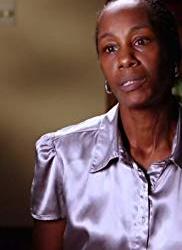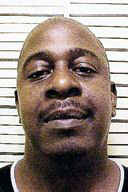#candice cockerham
Explore tagged Tumblr posts
Text
17-Year-Old Killed By Her Step Father

Vernetta Cockerham on November 19, 2002, feeling at peace for the first time since she could remember. After months of living in terror of her estranged husband's violence, knowing he would kill her if he could, she'd gone to sleep the night before relieved beyond words by the thought of his finally being arrested. Today she could fully focus on her children. Her oldest, Candice, had an appointment with an army recruiter. Cockerham was so proud of her daughter, the way she made friends easily even though she was one of the few African-American students in her rural North Carolina high school. And now, at 17, Candice wanted to serve her country.
Cockerham loaded her three kids into the Explorer and dropped off 6-year-old Rashieq at school, just down the street from where they lived. Their home, an old yellow farmhouse, had belonged to her grandmother and stood right in the center of Jonesville, within plain view of the town hall and the police station.

She drove the baby, Dominiq, almost 9 months old, to daycare, then left Candice at the library to copy a few documents for her interview. Cockerham had one more stop that morning. She needed to call the department of social services because someone—and she was sure it was her husband—had filed an anonymous child-neglect complaint against her. That man would stop at nothing. But at least now that he was in jail, he wouldn't be showing up everywhere she went to slam her around and threaten her, or digging holes near the house and telling her they would be the family's graves. She made the call from a friend's place and went back to the library. But Candice had already headed home.
As Cockerham pulled up to the house, she noticed the front door—it wasn't like her daughter to leave it ajar that way, especially with all that had been going on.
And then in a horrifying instant she saw them: her husband's keys, dangling in the lock.
She was barely through the door when he lunged at her with a knife.
"I killed her," she heard him say as if in slow motion. "And I'm going to kill you."
She reached for the knife, grabbing it by the blade.
There was no pain. Only terror.
"Candice!" she screamed. "Candice!"
He lunged again and Cockerham took cover behind a heavy three-tiered plant stand. It toppled, the glass shelves crashing and knocking the knife from her husband's hand. She felt a shard of glass slice into her head and the warmth of her blood dripping down her back. Just before she blacked out, she felt his hands around her throat.

When Cockerham came to, she thought she heard Candice's voice calling for her, as if rousing her from a deep sleep.
"Ma, get up. Get up."
But she didn't see her daughter anywhere. The front door was closed now, and as Cockerham struggled with the dead bolt, she caught sight of her fingers—cut so badly, bone showed through the flesh. The lock gave and Cockerham ran, stumbling in the morning chill, across the street and through the vacant lot facing her house to the police station. There she collapsed in the doorway, her throat slashed and bleeding heavily. Drifting in and out of consciousness, she pleaded for someone to help her daughter. Chief Robbie Coe held a towel to her neck, trying to stanch the bleeding. "I know who did it, but you need to tell me who did it," he told her. But Cockerham had only one thing on her mind: Where are my kids?
Coe sent two officers, Scotty Vestal and Tim Lee Gwyn, to the house, where they waited for backup. Another officer found Candice's body in the downstairs bedroom. Heavy duct tape covered her mouth and nose. She'd been beaten and suffocated; an electrical cord was tied around her neck and reinforced with a layer of tape. Her hands and feet had been bound. And her jeans were pulled down around her knees, leaving her half naked.
The police had not arrested Cockerham's husband, Richard Ellerbee. And despite everything she'd done to protect herself and her family from a crime like this, the unbearable tragedy had happened anyway. "It was absolute torture what he did," she says.
Like every state, North Carolina has stringent laws to protect women and their children from domestic violence. The process often begins with a woman filing for an emergency protective order, which can be obtained without a lawyer from a local court (it requires filling out paperwork and is usually issued by a judge on the strength of the complaint). Protective orders (also called restraining orders) vary from state to state but typically forbid an abusive partner to come within a certain distance of the victim and may make other restrictions, like prohibiting phone calls or e-mail. In North Carolina, the emergency order remains in effect until a hearing takes place (usually within ten days), at which time both sides are allowed to present evidence. The judge then decides whether to grant a final order, which lasts up to a year.
If police find probable cause that an order has been violated—even something as simple as driving past the victim's house—most states have laws that call for an arrest. However, a study published in 2000 in Criminal Justice and Behavior, based on Massachusetts records and studies in other states, suggests that as many as 60 to 80 percent of restraining orders are not enforced. Furthermore, a 2000 U.S. Department of Justice study found that officers made arrests in only 47 percent of cases in which the victim reported being raped—even fewer when the complaint was assault (36 percent) or stalking (29 percent). In California a 2005 report by the state attorney general's office found widespread hesitation among police and prosecutors to enforce restraining orders—with dangerous consequences. "For the victim," the report concluded, "there is a loss of faith in the system and reluctance to report new violations, even as these violations grow in seriousness. For the batterer, there is a sense of empowerment to commit new violations and more violent crimes." When the rules call for mandatory arrest, says Kristian Miccio, an associate professor of criminal law and procedure at the University of Denver's Sturm College of Law, "and they don't enforce it, you have the illusion of protection, which is worse than not having it at all."
Vernetta Cockerham is living that painful truth. When she took out a protective order against her husband in October 2002, she believed fully in the power of the law to keep her safe. And repeatedly she reported Ellerbee's violations to the police. But even when they arrested him, he was released on bond. "I go over it every day," she says, "and every day I say to myself, You did everything you were supposed to do by law."
Now she's trying to change the system. On November 18, 2004, almost exactly two years after Candice's murder and her own near death, Cockerham sued the town of Jonesville and its police department for failing to enforce the restraining order that was in place to protect them. It's been an exhausting five-year legal battle, and the case has not yet gone to trial*, leaving some of the facts in dispute—including the promise she says the police made to arrest her husband the night before the bloodshed. Cockerham's resolve is steely, but when she describes the crowd of teenagers who lined the street for Candice's funeral, she still breaks down and weeps.
#vernetta cockerham#candice cockerham#murder#tcc#buzzfeed true crime#true crime#illicit deeds#www.illicitdeeds.com#blacklivesmatter#blacklivesalwaysmatter#long reads#long post
24 notes
·
View notes